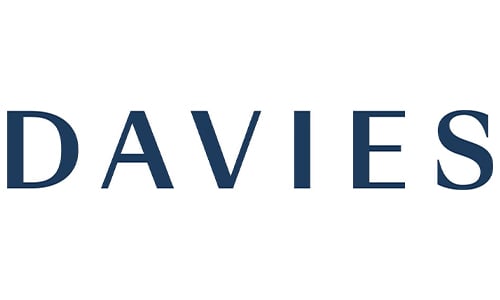A due diligence report is a key element of any proposed transaction and confidentiality in the process is critical. However, not all communications are inherently covered by solicitor-client privilege. Following best practices is therefore crucial to ensure clients are protected at all times against accidental disclosure or the leak of non-privileged information. We asked Nathalie Goyette of Davies to walk us through the different types of privilege in due diligence processes, and what best practices lawyers can follow to provide superlative service to their clients during this stage of the transaction.
What criteria or standards govern whether solicitor-client privilege applies to due diligence reports and related documentation? Does this change depending on whether the counsel is in-house or external?
The ultimate objective of the due diligence process is not a legal opinion, but a business decision: whether or not to proceed with the contemplated transaction. In this context, legal advice is ancillary to the business decision and documents created in the due diligence process are not inherently privileged.
Recent Articles
However, a document prepared in the due diligence phase for the principal purpose of obtaining or providing legal advice, for instance, a legal opinion on the merits of a litigation involving the target company should qualify for solicitor-client privilege. In such a situation, whether counsel providing the opinion is in-house or external will make no difference as long as obtaining legal advice is the predominant purpose of the exercise.
What are some best practices that legal counsel can use to protect their clients from inadvertently exposing themselves to risk through the use of non-privileged communications? What are the potential consequences of using non-privileged documents in a due diligence process?
In the course of the due diligence process, several documents that are confidential but not privileged are shared with the potential purchaser and other parties, such as prospective lenders. This will include financial information, business practices, trade secrets, etc. To prevent misuse of this information, counsel should include contractual provisions that highlight the proprietary and confidential nature of the information and provide for the return of the same if the transaction does not proceed.
Learn more about the difference between proprietary and confidential information in this article.
Further, counsel should ensure that measures are taken to prevent the inadvertent inclusion of privileged documents among the documents shared with other parties. It is not uncommon for legal opinions to be accidentally included in virtual data rooms, thereby making a client vulnerable to the argument that privilege has been waived. For a situation where such a claim was made, see United States v Sanmina Corp. et al. For the same reason, counsel should take measures to prevent the sharing of non-privileged documents that make reference to privileged information.
Finally, counsel should see that legal advice provided in the course of the due diligence process is clearly identified as such and carved out from the non-privileged work. This will result in a third party, for instance the tax authorities auditing the transaction, having access to the tax due diligence report prepared by an accountant, but not to the privileged legal opinion addressing specific issues identified in the report.
What is “litigation privilege” and how does it differ from solicitor-client privilege? What are its benefits and its shortcomings for the purposes of protecting the client?
Litigation privilege protects documents and communications whose dominant purpose is the preparation of litigation. Litigation privilege may overlap with solicitor-client privilege, since some communications with counsel and documents in the lawyer’s brief will be protected by both solicitor-client and litigation privilege. In the absence of overlap, litigation privilege differs from solicitor-client privilege in the following key ways:
- it arises and operates even in the absence of a solicitor-client relationship;
- it applies indiscriminately to all litigants, whether or not they are represented by counsel; and
- unlike solicitor-client privilege, it is not permanent; it ends when litigation ends.
Since due diligence is akin to a fishing expedition, documents created in the course of due diligence usually do not attract litigation privilege. In addition, a target corporation that has communications and documents prepared in anticipation of litigation should be mindful that disclosing them in the course of the due diligence process without taking the measures described in answer to the next question below may be taken as a waiver of litigation privilege. For example, a target corporation that discloses to its potential acquirer a memorandum it obtained in anticipation of the scrutiny of a deduction by the tax authorities should be mindful that, even if the tax authorities acknowledge that the memorandum is protected by litigation privilege, they may allege that the privilege has been waived as a result of the disclosure.
How does “common interest privilege” affect solicitor-client privilege? What advice do you have for best practices in managing these two privileges in tandem during due diligence processes?
Common interest is an exception to the general rule that privilege is waived when a privileged communication is shared with or disclosed to a third party. The exception applies when the disclosure is intended to be in confidence and the third party involved has a sufficient common interest with the holder of the privilege to support extension of the privilege to the disclosure. This will be the case when both parties have an interest in concluding a transaction and the sharing of the privileged information will facilitate this common interest.
Since the common interest exception applies to a disclosure that is intended to be in confidence, counsel whose client will disclose privileged information in the course of a due diligence process should draft a letter to be signed by the “common interest party.” The letter should provide that:
(1) the document disclosed is privileged and confidential;
(2) the parties share a common interest in completing the transaction;
(3) the disclosure will facilitate the consummation; and
(4) the disclosure does not constitute a waiver of the privilege that protects the documents.
The letter should further provide that the common interest party will not share the document with anyone except as may be required by (a) regulatory bodies or authorities or (b) law, statute, regulation, decision or order and provided that prompt notice is given to the holder of the privilege to allow the latter to seek an appropriate protective order or other remedy.
How has the rise of work from home affected the boundaries and usage of solicitor-client privilege? What best practices do you recommend to help clients and lawyers adapt to this new work reality?
In terms of best practices for both lawyers and clients, I recommend:
- ensuring that conversations involving counsel cannot be overheard;
- verifying that the videoconference platform used is secured and only people who need to attend are in the virtual room;
- communicating from business, not personal, email addresses;
- segregating legal advice from business advice (if any) given by counsel; and
- placing all documents (emails, physical notes to file, opinions, notes of conversation, etc.) referring to privileged communications in a secure place and making use of the “privileged and confidential” annotation on folders and documents.
To clients, I would also recommend that when a communication is not privileged (e.g., communication with a colleague) consideration be given to talking either by phone or videoconference rather than writing about sensitive issues. Otherwise, communications that are not privileged can be discovered.
***
 Nathalie is a partner in the Tax and Tax Disputes practices. She helps clients manage and resolve audit and appeal disputes with provincial and federal tax authorities. She has extensive experience representing corporate and individual clients on all aspects of tax litigation matters relating to income tax, goods and services tax, provincial sales tax, tax avoidance, and mining tax. She has earned the trust of clients as varied as multinational corporations, closely held businesses, high-net-worth individuals, and trusts and estates.
Nathalie is a partner in the Tax and Tax Disputes practices. She helps clients manage and resolve audit and appeal disputes with provincial and federal tax authorities. She has extensive experience representing corporate and individual clients on all aspects of tax litigation matters relating to income tax, goods and services tax, provincial sales tax, tax avoidance, and mining tax. She has earned the trust of clients as varied as multinational corporations, closely held businesses, high-net-worth individuals, and trusts and estates.
She also worked as a senior tax lawyer for the Federal Department of Justice. She was a member of the Rules Committee of the Tax Court of Canada for a decade and past member of its Judicial Advisory Committee. She now chairs the Canadian Bar Association’s Bench & Bar Committee with the Tax Court of Canada. She has received the Order of Merit of the University of Ottawa’s Civil Law Faculty. Nathalie is a frequent speaker at national and international tax seminars and has authored numerous publications, including a book on tax treaty abuse. Select Recognition: Chambers Canada; The Lexpert®/American Lawyer Guide to the Leading 500 Lawyers in Canada; Lexpert® Special Edition — Litigation; The Best Lawyers in Canada; Who’s Who Legal: Canada.





